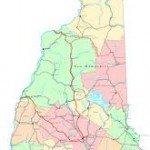New Hampshire Machinery and Equipment Appraisals
 Collateral Evaluation Associates, Inc. (CEA) has provided machinery and equipment appraisals in New Hampshire since 1990. Our expertise as machinery and equipment appraisers includes medical equipment, construction equipment, manufacturing equipment, industrial equipment, and transportation equipment.
Collateral Evaluation Associates, Inc. (CEA) has provided machinery and equipment appraisals in New Hampshire since 1990. Our expertise as machinery and equipment appraisers includes medical equipment, construction equipment, manufacturing equipment, industrial equipment, and transportation equipment.
CEA provides machinery and equipment appraisals for the following purposes: asset based loans or refinancing; ad valorem tax purposes; allocation of purchase price; condemnation or eminent domain; FAS141/FAS142 reporting; insurance purposes; leasing; corporate conversions, dissolutions, mergers, purchases, sales, etc.
CEA has completed appraisals in the following New Hampshire cities and towns: Concord; Manchester.
Agriculture in New Hampshire is hampered by the mountainous topography and by extensive areas of unfertile and stony soil, but farmers are helped by the cooperative marketing that has expanded since World War II. Their main sources of income are dairy products, greenhouse products, apples, cattle, and eggs.
Since the late 1800’s manufacturing has been important in the state. The textile mills and factories producing leather goods (such as shoes and boots) that once lined the state’s fast moving rivers have given way to high technology firms, many of them migrating from the Boston area and its higher tax rates. Electrical and other machinery, as well as fabricated metals and plastics, are also manufactured.
Lumbering has been important since the first sawmill was built on the Salmon Falls River in 1631. Most of the timber cut now is used in paper production. Although New Hampshire has long been known as the Granite State, its large deposits of the stone are no longer extensively quarried, as the use of steel and concrete in modern construction having greatly decreased the granite market. Mineral production, chiefly of sand, gravel, and stone, is today a minor factor in New Hampshire’s economy.
Year round tourism is now the state’s leading industry. In the winter skiers flock northward and the state has responded to the increasing popularity of winter sports by greatly expanding its facilities. When the snows melt, skiers are replaced by hikers, rafters, and climbers. Folk crafts such as wood carving, weaving, and pottery making have been revived to meet the tourist market.
